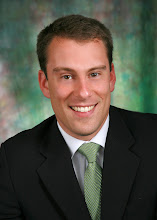by Hans Zeiger
The News Tribune
April 22, 2011
On this 41st Earth Day, it is worth reflecting on the direction of environmental policy in Washington state.
Washingtonians are shaped by the environment we inhabit — the
mountains, Puget Sound, the forested foothills and river valleys, the
Columbia River and the vast farmlands of Eastern Washington. Across our
state, across party lines, the environment is more than a plank in a
platform. It defines our way of life.
Earth Day grew out of this state’s strong tradition of environmental
stewardship. Its founder, Denis Hays, hailed from Camas in southwest
Washington.
As our state and the Puget Sound region grow, so does the need to
protect our environment. The environmental champions of our own
generation will be creative leaders who identify ways to promote
economic progress and environmental sustainability at the same time.
They will work to protect our water, land and air while strengthening
communities, not rule-making agencies.
First, we need to keep our rivers, lakes and Puget Sound clean. Clean
water legislation this session included restrictions on phosphorus in
fertilizer and bans on coal-based tar sealants and copper-containing
boat paint.
This regulatory approach may do some good for our waterways,
but it will take more than laws to
successfully address water
pollution.
Stormwater runoff is the single most pressing environmental
challenge in our region. Our systems are both costly and inadequate.
The problems of nonpoint pollution and runoff from roads and highways
require thoughtful solutions and incentives.
Many emerging ideas for dealing with stormwater are to be found at
the Washington State University Research and Extension Center in
Puyallup, a national leader in the study of stormwater mitigation
technologies like pervious asphalt and rain gardens (soil arrangements
that are designed to contain runoff). Puyallup is also home to a
successful neighborhood rain garden experiment. In future legislative
sessions, lawmakers should explore new incentives for stormwater
mitigation.
Second, we must continue to conserve valuable land resources in our
communities. As our region grows, we must find creative ways to save
our working farmlands and forests and to develop new park lands. In
many cases, public investment is necessary. The Washington Wildlife and
Recreation Program and other public conservation programs do much for
our quality of life.
In other cases, the work of conservation is best handled through
private ownership, from small landowners who wish to leave a legacy to
the extraordinary forest work of Weyerhaeuser.
Our state can do more to help private property owners. Owners can be
more effective caretakers of the land in a culture of voluntary
stewardship than in a culture of administrative rule. Recent
recommendations by the William D. Ruckelshaus Center, adopted by the
Legislature, will help communities and landowners solve problems and
settle disputes in a more collaborative fashion.
Third, we need to decrease our use of fossil fuels. Whether you’re
concerned about our carbon footprint or our dependence on foreign oil,
it is worth moving toward alternative sources of energy. This year’s
biggest environmental legislation was ratification of negotiations to
ease our state off coal-fired electricity by 2025, to be replaced with
natural gas.
In other instances of energy policy, incentives may be preferable to
plans. Policymakers are not always the best judges of energy solutions
– witness the failed federal experiment in ethanol subsidies. It was
private innovation that produced hybrid and electric vehicles.
How do we encourage the market further? Lawmakers would be wise to
hold off on a new fee for drivers of electric cars. I voted against
this fee in the House Transportation Committee because it seems it
would be a small disincentive for the nascent electric vehicle
industry.
Furthermore, the Washington Policy Center proposes a revenue-neutral
carbon price as a way to roll back business taxes and stimulate clean
technologies while acknowledging pollution in the cost of products.
This Earth Day, legislators are grappling with priorities. Yes, the
protection of our water, land and air will require sustained public
investment. More importantly, it will require creative policy
leadership that values free enterprise, private property, voluntary
collaboration and strong communities.


